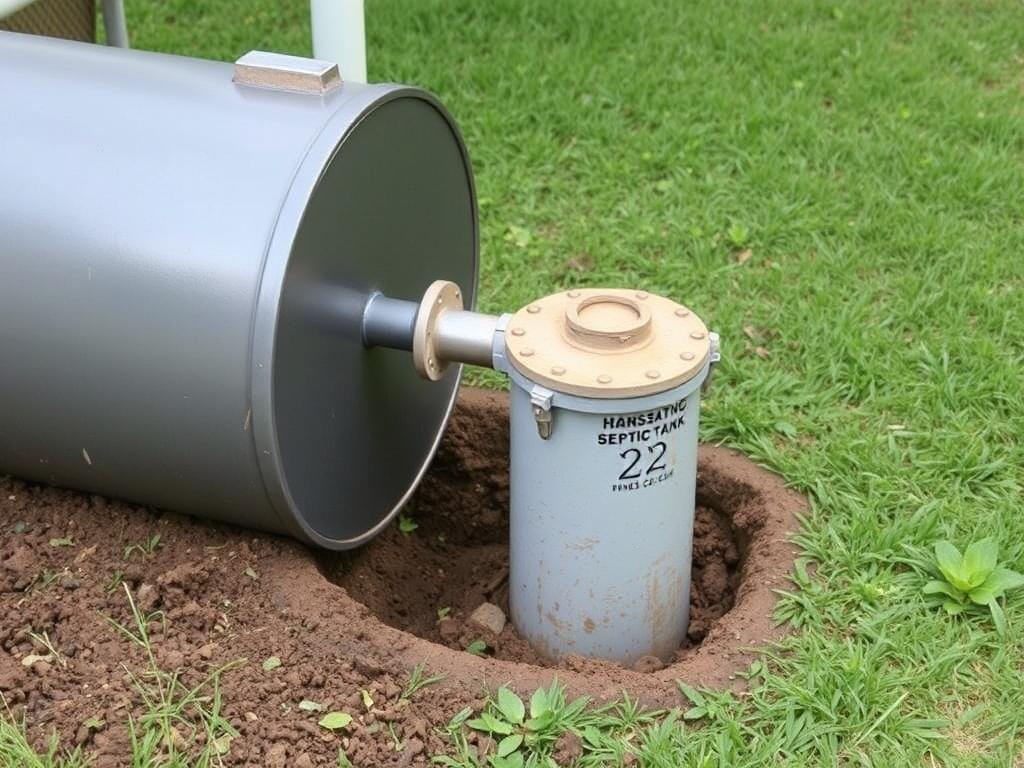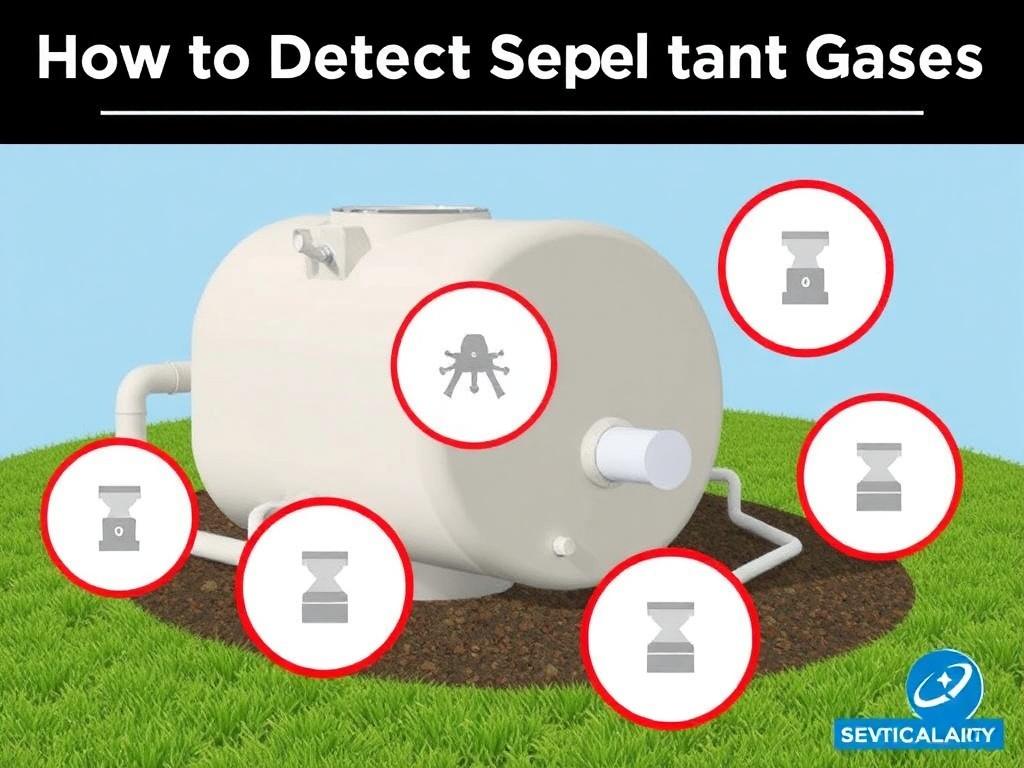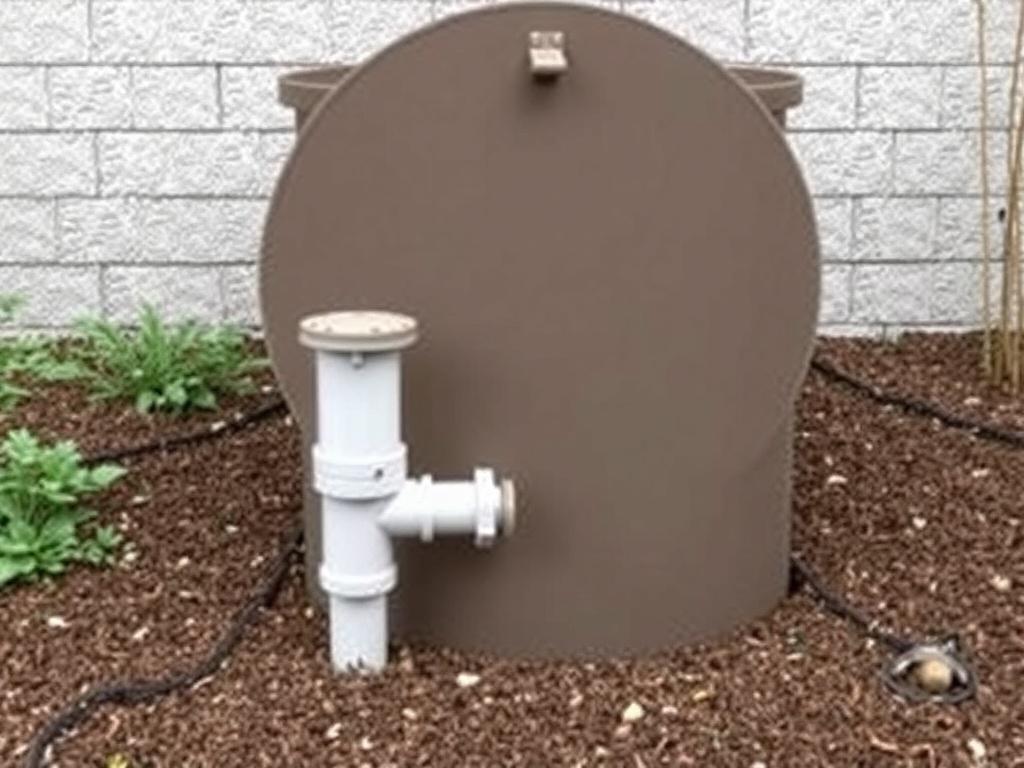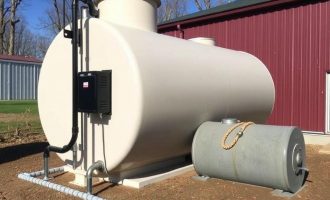Septic tanks play a vital role in managing household wastewater, especially in rural or suburban areas without access to municipal sewer systems. While they efficiently break down waste and help maintain hygiene, they can also produce potentially harmful gases if something goes wrong. Knowing how to detect septic tank gases early is crucial for maintaining a safe environment for your family and protecting your property. In this article, we’ll explore the different types of septic tank gases, how to spot their presence, and what you should do if you detect these gases.
- Understanding Septic Tank Gases
- Common Symptoms of Septic Tank Gas Leaks
- Why Detecting Septic Tank Gases Matters
- Methods to Detect Septic Tank Gases
- 1. Using Your Senses
- 2. Gas Detection Devices
- 3. Professional Inspection
- Signs of Septic Tank Gas Issues in Your Home and Yard
- Stagnant Air and Vent Blockages
- Visible Damage to Septic Tank Components
- Health Symptoms Linked to Septic Gases
- Steps to Take if You Detect Septic Tank Gases
- Ventilate the Area
- Inspect and Clear Vents
- Schedule Septic Tank Maintenance
- Consider Installing Gas Detectors for Long-Term Safety
- Tips to Prevent Septic Tank Gas Problems
- Septic Tank Gases FAQ
- Q: Can septic tank gases seep into my home?
- Q: Is methane from septic tanks dangerous?
- Q: How often should I have my septic tank pumped?
- Q: What is the smell of septic tank gas?
- Q: Can I detect septic gas leaks without equipment?
- Key Takeaways Table: Detecting Septic Tank Gases
- Final Thoughts
Understanding Septic Tank Gases

Septic tank gases are primarily the byproducts of the decomposition of organic matter in the tank by bacteria. The most common gases released are methane, hydrogen sulfide, carbon dioxide, and ammonia. These gases can be dangerous as they cause unpleasant odors, are combustible or explosive, and may pose health risks when inhaled in significant amounts.
Methane, also known as swamp gas, is odorless but highly flammable, making it a serious hazard if it accumulates in an enclosed space. Hydrogen sulfide, on the other hand, is notorious for its rotten egg smell and is toxic even in low concentrations. Ammonia creates a pungent odor similar to household cleaners, while carbon dioxide, though not toxic at low levels, can displace oxygen and cause suffocation if it accumulates.
Common Symptoms of Septic Tank Gas Leaks
Spotting septic tank gases early requires a keen eye and attention to subtle cues around your home and yard. Here are some common symptoms that might suggest the presence of septic tank gases:
- Unpleasant odors: A strong smell of rotten eggs, sulfur, or ammonia near your septic system, yard, or inside your home.
- Gurgling sounds: Bubbling noises from your drains or toilets can indicate gas buildup in the pipes.
- Slow drainage: If water takes longer to drain, it may be due to gas pressure affecting the septic tank’s flow.
- Dead patches of grass: Toxic gases escaping through cracks can harm vegetation above the septic tank.
- Dizziness or nausea: Household members experiencing unexplained symptoms like headaches or respiratory irritation near septic areas.
Why Detecting Septic Tank Gases Matters
Ignoring septic tank gases is risky. Methane can explode when ignited, potentially causing serious damage or injury. Hydrogen sulfide can cause eye irritation, difficulty breathing, or even fatalities in high concentrations. Ammonia exposure irritates respiratory systems, while carbon dioxide buildup in confined spaces can dangerous asphyxiation.
Most importantly, detecting septic tank gases protects your home’s value and the wellbeing of your family. Septic system failures can also contaminate groundwater, leading to further environmental and health issues.
Methods to Detect Septic Tank Gases
Detecting septic tank gases doesn’t always require expensive equipment. Below are various approaches, ranging from simple sensory checks to high-tech tools, you can use to identify the presence of these gases.
1. Using Your Senses
Your nose is often the first tool for spotting septic tank gases. If you smell persistent rotten eggs or ammonia scents near your septic tank or yard, it’s an indicator gas is leaking. Look out for unusual odors in your basement, near toilets, or plumbing vents since gases can enter your home from poorly sealed pipes.
Sight is helpful too. Dead grass or soggy soil near the tank or drain field might indicate gas or effluent is leaking from cracks in the system.
2. Gas Detection Devices
For accurate detection, especially when dealing with larger properties or commercial sites, portable gas detectors come in handy:
| Device Type | Detects | Advantages | Disadvantages |
|---|---|---|---|
| Methane Detector | Methane | Highly sensitive to methane | May not detect other gases |
| Multi-Gas Detector | Methane, H2S, Ammonia, CO2 | Detects multiple gases, portable | More expensive |
| Hydrogen Sulfide Detector | H2S | Very sensitive, alarm feature | Limited to one gas |
When using gas detectors, make sure to calibrate them according to the manufacturer’s instructions and periodically test them to ensure reliability.
3. Professional Inspection
Sometimes, it’s best to call in experts who specialize in septic system maintenance. They use advanced tools such as gas chromatography and infrared gas analyzers to identify exact gas types and concentrations. Professionals can also inspect the tank’s structural integrity and pinpoint whether gases are escaping due to cracks or blocked vents.
Signs of Septic Tank Gas Issues in Your Home and Yard
Beyond odor and specialized detection, being aware of the following signs can save you time and money.
Stagnant Air and Vent Blockages
Septic tanks have ventilation pipes that allow gases to escape safely into the atmosphere. If these vents are blocked by debris, snow, or nesting animals, gases can back up into your home. You may notice stale or musty air, especially in basements or near plumbing fixtures.
Visible Damage to Septic Tank Components
Cracks, broken seals, or damaged lids provide path for gases to leak out. Routine inspection of your septic tank’s lid and pipes can reveal these issues before they worsen.
Health Symptoms Linked to Septic Gases
It’s important to watch for recurring health symptoms such as dizziness, headaches, nausea, or respiratory irritation among household members, particularly when these symptoms improve after leaving the house.
Steps to Take if You Detect Septic Tank Gases
Finding septic tank gases can be alarming, but timely action helps you resolve problems before they escalate.
Ventilate the Area
If gases are detected indoors, open windows and doors to increase airflow and reduce gas concentrations. Avoid using any electrical appliances or open flames in the area, as methane is highly flammable.
Inspect and Clear Vents
Check the septic system’s vents for blockages such as leaves, bird nests, or debris. Clearing these ensures gases can escape safely.
Schedule Septic Tank Maintenance
Call a licensed septic professional to perform a thorough inspection, pump the tank if needed, and repair any damage. Regular maintenance, typically every 3-5 years, minimizes risks from gas accumulation.
Consider Installing Gas Detectors for Long-Term Safety
For peace of mind, installing permanent gas detectors in basements or near septic tanks can alert you early to dangerous conditions.
Tips to Prevent Septic Tank Gas Problems
Avoiding septic tank gas buildup is easier when you keep good habits:
- Do not flush harsh chemicals: They kill helpful bacteria in your tank, disrupting waste breakdown and gas production.
- Avoid overloading the system: Conserve water to prevent excessive strain on your septic tank.
- Protect your vent pipes: Install covers or screens to prevent animals from nesting inside.
- Schedule regular inspections and pumping: Keeping the tank clean and functional reduces gas leaks.
- Check for plumbing leaks: Leaks can saturate your drain field, causing gas displacement.
Septic Tank Gases FAQ

Q: Can septic tank gases seep into my home?
A: Yes, if there are cracks in the tank, plumbing leaks, or blocked vents, septic gases can enter your home’s indoor air.
Q: Is methane from septic tanks dangerous?
A: Methane is flammable and can cause explosions in confined spaces. It can also displace oxygen, leading to suffocation risks.
Q: How often should I have my septic tank pumped?
A: Generally, every 3 to 5 years depending on household size, water usage, and tank capacity.
Q: What is the smell of septic tank gas?
A: It often smells like rotten eggs (hydrogen sulfide) or strong ammonia. Methane itself is odorless.
Q: Can I detect septic gas leaks without equipment?
A: Often yes, by noticing odors, dead vegetation, or health symptoms. However, detection devices provide more reliable identification.
Key Takeaways Table: Detecting Septic Tank Gases
| Detection Method | What It Detects | Pros | Cons |
|---|---|---|---|
| Nose (Smell) | Hydrogen sulfide, ammonia | Free, immediate | Not precise, can be masked |
| Visual Signs | Gas leaks, effluent leaks | Easy, no cost | Requires inspection experience |
| Portable Gas Detectors | Methane, H2S, CO2, Ammonia | Accurate, sensitive | Costly, require calibration |
| Professional Inspection | All gases, structural issues | Comprehensive, expert advice | Expensive |
Final Thoughts

Detecting septic tank gases might seem daunting at first, but understanding why these gases form and recognizing the signs can help you protect your home and family. Simple sensory checks, combined with occasional professional inspections, can keep your septic system running smoothly and avoid health or safety hazards. By taking proactive steps — such as routine maintenance, vent care, and responsible water usage — you can reduce the chance of dangerous gases affecting your property. When you do detect septic tank gases, acting quickly to ventilate, repair, and consult experts is key to a safe and pleasant living environment. Remember, a well-maintained septic system means peace of mind for you and everyone you care about.
Помогла вам статья?






